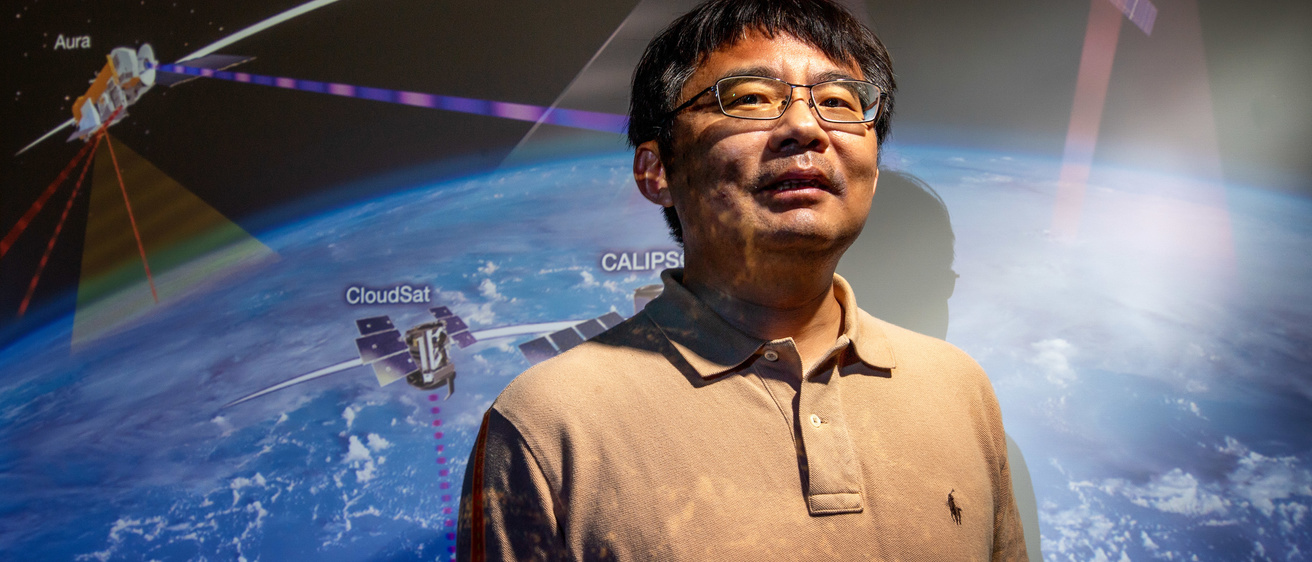Jun Wang, the James E. Ashton Professor of Engineering, is Iowa’s lead investigator on Tropospheric Emissions: Monitoring Pollution or TEMPO. He holds a secondary appointment in the Department of Physics and Astronomy. The space instrument is expected to help scientists understand the sources of pollution by revolutionizing how real-time air quality data is collected.
“TEMPO ushers a new era for us to monitor air pollutants from space over North America,” Wang said. “It will offer us hourly view of how air pollutants from power plants, ground transportation, and fires affect the quality of air we breathe at the neighborhood scale. Its temporal and spatial resolutions are both unprecedented."
He and his team are supported by NASA to develop a novel algorithm for TEMPO to map how smoke particles from fires are distributed in the atmosphere.
Wang added, "Knowing, for example, the altitude of the smoke layer can help us predict the poor air quality we saw this summer due to Canada fires in 1-3 days in advance, thereby mitigating public health burden associated with air pollutant exposure."
Wang is one of approximately 20 principal investigators on TEMPO, which is led by Kelly Chance, a senior physicist at the Harvard & Smithsonian Center for Astrophysics. Wang attended TEMPO’s April launch by SpaceX in Cape Canaveral, Florida. The satellite carrying TEMPO hovers 22,000 miles (about 35,405 km) above North America.
Time Magazine noted the invention as a breakthrough in real-time air quality info.
TEMPO is “monitoring nitrogen dioxide and air quality, sending hourly updates that allow scientists to better understand the sources of pollution, which is increasingly urgent given global declines in air quality and bouts of wildfire smoke. This high-altitude perch allows an unprecedented macro analysis, and high-resolution tracking enables scientists to zoom in on a town or city level.”
TEMPO is described as a UV-visible spectrometer and the first ever space-based instrument to monitor air pollutants hourly across the North American continent.
Wang, a UI professor of chemical and biochemical engineering and assistant director of the Iowa Technology Institute, is leading multiple grants tied to TEMPO.
NASA is sponsoring a $1.1 million project to enhance and enrich the TEMPO mission by providing an interactive online mapping system to provide decision support for collaborators on air quality forecast and public health management. NASA is also supporting a $460,000 grant to develop an aerosol height product from the Earth Polychromatic Imaging Camera (EPIC) onboard the Deep Space Climate Observatory (DISCOVR) spacecraft, which is 1 million miles (about 1,609,344 km) away from Earth.
Wang had been working on the project for more than 10 years before its launch.
Learn more at this College of Engineering article.
